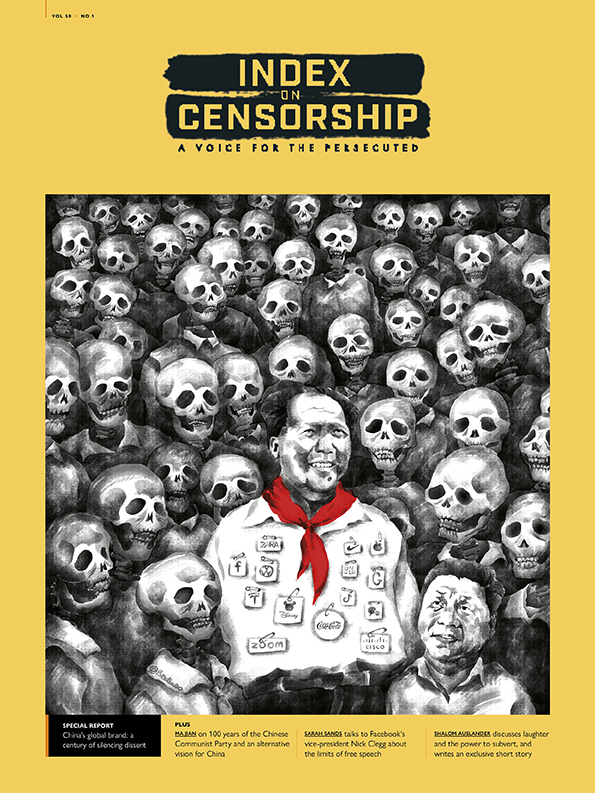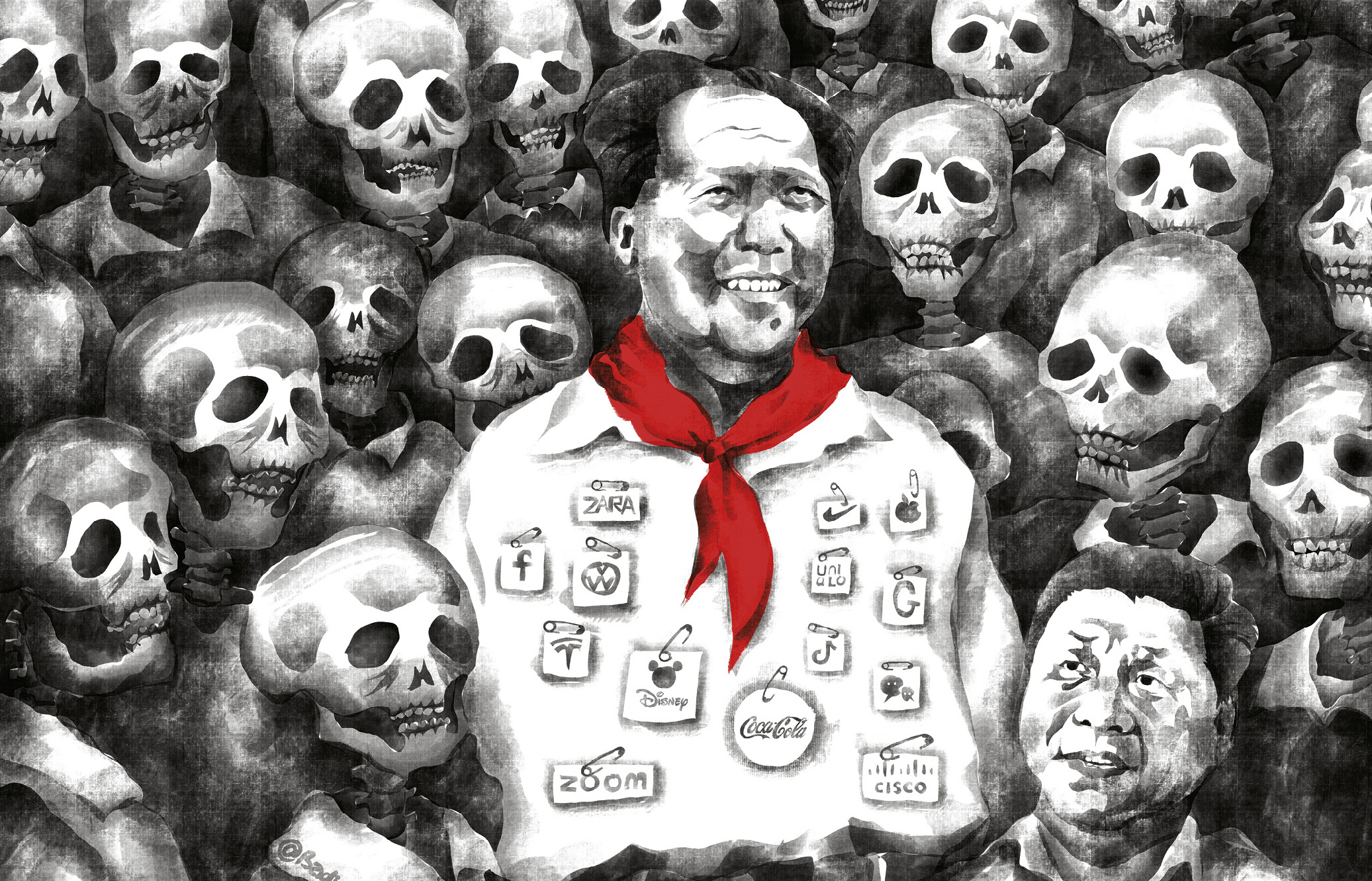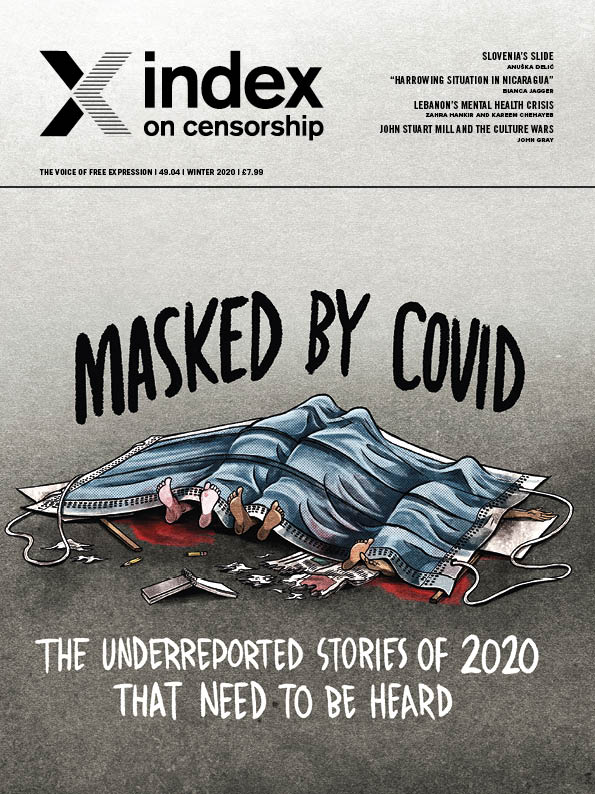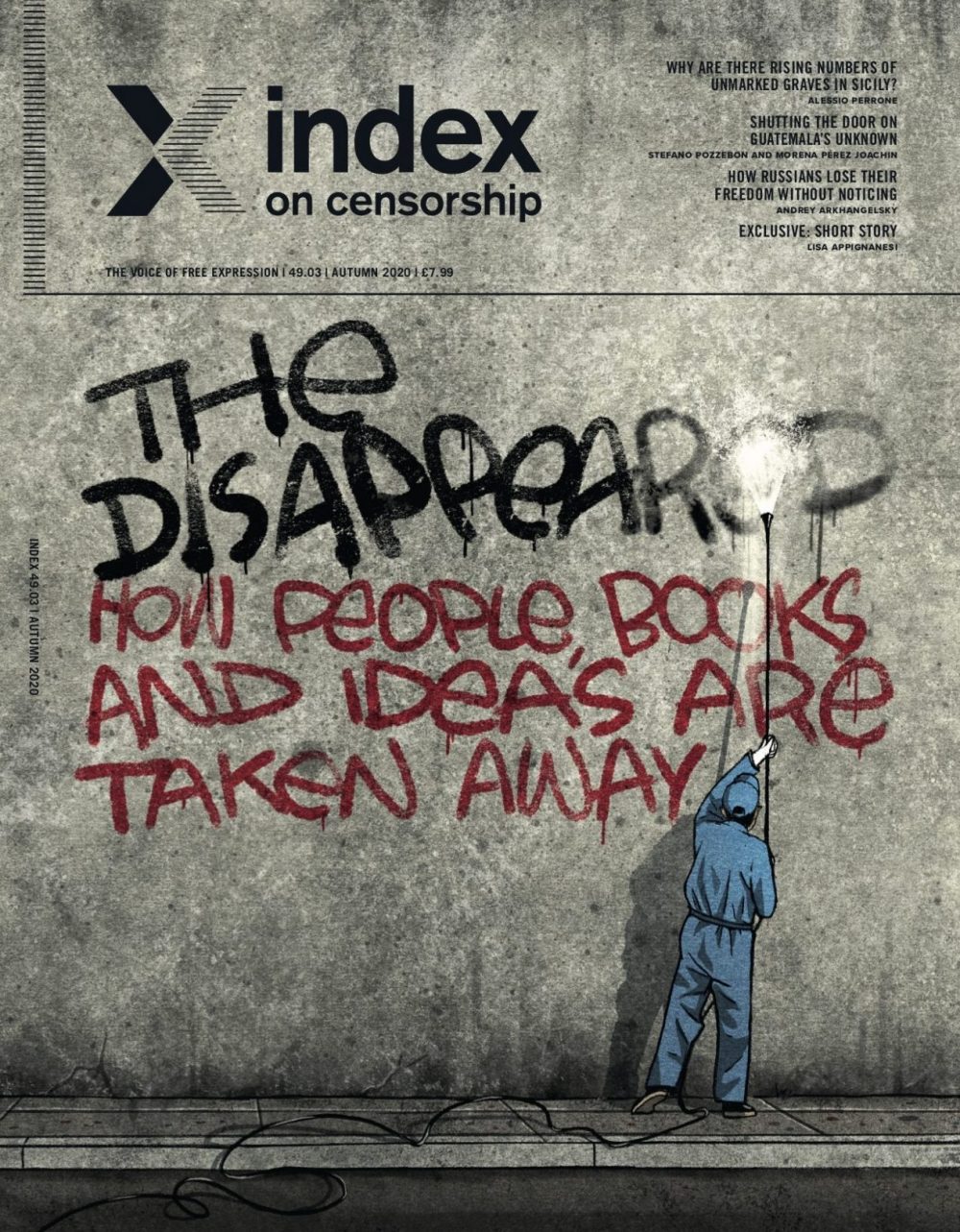Celebrated author Ma Jian reflects on the terrible legacy of the Chinese Communist Party in its centenary year


Celebrated author Ma Jian reflects on the terrible legacy of the Chinese Communist Party in its centenary year

Volume 50.01 Spring 2021

Index looks back on 100 years of the Chinese Communist Party and how their censorship laws continue to shape the lives of people around the world and threaten their right to free speech. Inside this edition are articles by exiled writer Ma Jian and...

Celebrated author Ma Jian reflects on the terrible legacy of the Chinese Communist Party in its centenary year
A look at what’s inside our Winter 2020 issue, which looks at the stories that should have received more attention were it not for Covid

Volume 49.03 Autumn 2020

Lisa Appignanesi speaks to Rachael Jolley about the inspiration for her new short story, which looks at ageing and how it plays out during lockdown

Rachael Jolley introduces the autumn 2020 issue of Index on Censorship magazine, which looks at how and why our freedoms disappear and those who are willing to stand up for them
The complete list of contents for the Autumn 2020 issue of Index on Censorship

The autumn 2020 podcast covers the theme of the Disappeared: How people, books and ideas are taken away, with Oliver Farry and Michella Oré
A quarterly journal set up in 1972, Index on Censorship magazine has published oppressed writers and refused to be silenced across hundreds of issues.
The brainchild of the poet Stephen Spender, and translator Michael Scammell, the magazine’s very first issue included a never-before-published poem, written while serving a sentence in a labour camp, by the Soviet dissident Aleksandr Solzhenitsyn, who went on to win a Nobel prize later that year.
The magazine continued to be a thorn in the side of Soviet censors, but its scope was far wider. From the beginning, Index declared its mission to stand up for free expression as a fundamental human right for people everywhere – it was particularly vocal in its coverage of the oppressive military regimes of southern Europe and Latin America but was also clear that freedom of expression was not only a problem in faraway dictatorships. The winter 1979 issue, for example, reported on a controversy in the United States in which the Public Broadcasting Service had heavily edited a documentary about racism in Britain and then gone to court attempting to prevent screenings of the original version. Learn more.